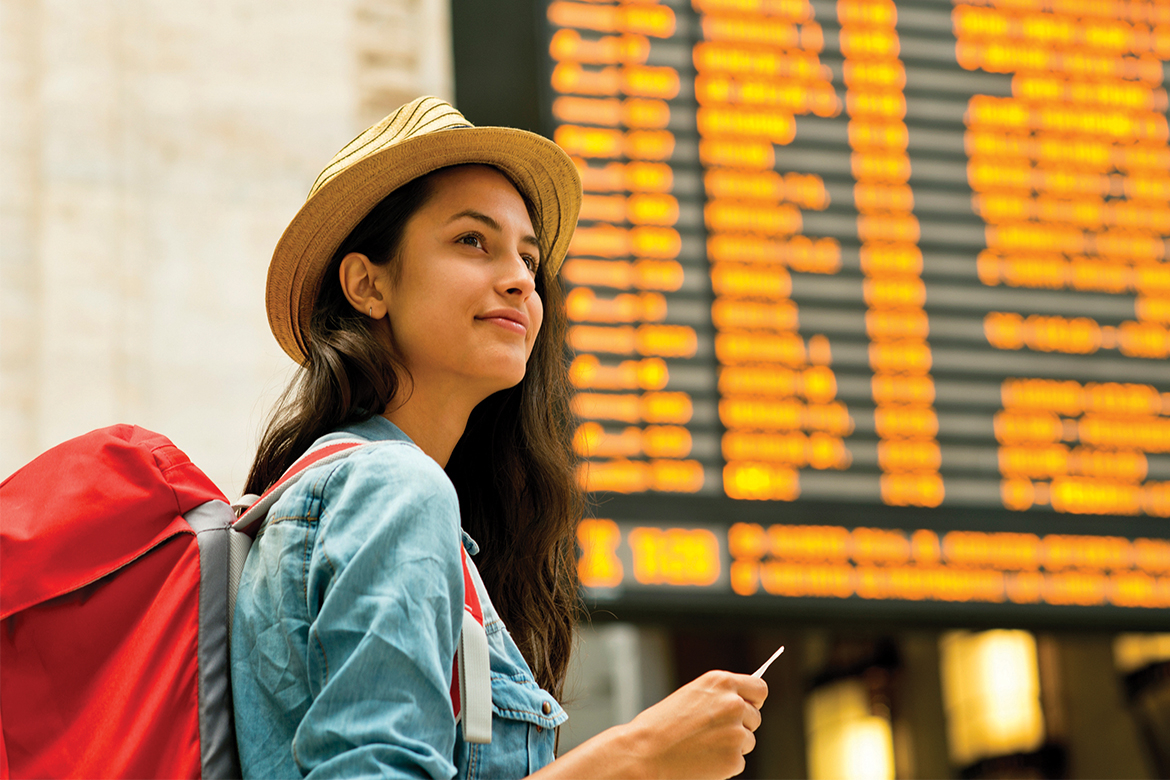How to keep safe your business travels: simple precautions to take
As part of our role, many of us are required to travel, sometimes to dangerous locations. Even the most seasoned of business travellers can become complacent and forget basic travel safety advice. Here we provide some reminders on simple precautions to take to keep safe on business travel, especially to hostile environments.
Occasionally, companies or organisations will require staff to travel on their behalf, potentially to a hostile environment. This could be a politically unstable country on the brink of revolution or civil war or a part of a country prone to lawlessness. Add radicalisation and terrorism to the mix and the dangers become all too clear. In recent years, close European countries, like France and Spain, which have always been considered safe, have been the subject of terrorist attacks and demonstration. And, of course, parts of any western city can be as unfriendly an environment as any so-called danger zone. Limiting the risks while travelling for business, or indeed any reason, is plain common sense.
Be prepared
The first rule is to know your destination. Prepare as much as possible by researching the location to which you are going.
Talk to colleagues who have first-hand experience to share. Check the Foreign and Commonwealth Office (FCO) website for the latest travel advice, especially if the country to be visited is politically volatile or if there is a known risk of terrorist activity.
The FCO encourages British travellers to access current, country-specific travel advice by subscribing to its free email alert service or by following the FCO on social media via Twitter or Facebook. British Embassies and High Commissions also have their own websites and may have individual social media feeds or consular networks.
Checking your travel documents
Points such as ensuring that passports are up to date and visas are in order are obvious prerequisites, as are completing courses of pre-trip medical immunisations and ensuring that you have comprehensive travel insurance cover and access to funds in an emergency.
It is always wise to take some back-up funds in the forms of travellers’ cheques, sterling or US dollars.
Remember that certain countries require passports to be valid for six months following the date of travel. Take copies of important travel documents and store them online using a secure data storage site. If you will be driving while overseas, double check that your driving licence is current and valid for the country in question. Because bank accounts and credit card usage – corporate and personal – are monitored constantly for unusual activity, travellers should always advise banks and credit card companies before going abroad and check that the cards themselves are not due to expire during the trip.
Careful packing
Keep your valuables in your hand luggage and keep your documents and money separate.
Keep all displayed information such as that on name tags to the bare minimum. Be discreet: carry luggage that’s plain and inexpensive, avoid wearing jewellery and dress down as much as possible. Travel light if you can. You can then move more quickly without the encumbrance of heavy luggage.
On arrival
Be prepared from the moment you arrive. Be vigilant about who is around you. Keep alert and avoid using your mobile devices until you are safely inside an office or your hotel room.
Double check the identity and credentials of everyone you encounter, beginning at the airport where you need full details of the cab company, the driver (with photo if possible) and the car waiting for you. Vary your routes, routines, timings and movements.
Do not discuss your business or travel plans in public areas where you could be overheard. Limit discussing your travel plans and movements to people you trust.
When driving
Keep doors locked and windows closed, especially in areas containing traffic lights, stop signs or speed bumps.
If approached while stationary, drive away quickly. If followed or harassed, head for the nearest police station or hotel. Note the licence plate number of the car. If travelling alone when a car rams you, don’t stop to exchange accident information. Go to the nearest service station or other public place to call the police. Always be wary of strangers offering assistance. Look for parking places with good visibility and leave ample space between yours and the vehicle in front.
Using taxis
Use only registered taxis and avoid hailing one in the street: where possible, pre-book a taxi from the hotel, on the principle that you choose the taxi rather than letting the taxi choose you. Keep enough cash for a cab, as well as the hotel’s business card.
If caught up in a terrorist incident abroad
Counter Terrorism Policing (CT Policing) – in association with the Foreign and Commonwealth Office, the Home Office and ABTA – have a produced a four-minute ‘Run, Hide, Tell International’ film on how to keep safe should the worst happen. Although targeted at holidaymakers, it provides essential guidance to any of us caught up in a terrorist incident abroad.
You can find further details and view the film at www.gov.uk/government/news/stay-safe-abroad-this-summer
For further information and advice about travelling abroad, together with contact details for all British diplomatic posts overseas, go to: www.gov.uk/foreign-travel-advice.
The information in this article is taken from the City of London Crime Prevention Association booklet on Travel Safety. For more information visit www.cityoflondoncpa.org.uk
Andrea Berkoff
See also:
citizenAID® app – advice if involved in a terrorist attack
Hotel security: how safe are hotels?
Business travel: a security risk to personnel
Business travel security: risks for women


